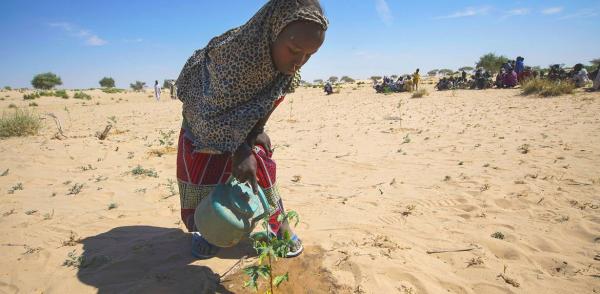Burkina Faso: the forgotten humanitarian crisis
WASH Roadmap calls for structural solutions to humanitarian crises
7 Apr 2023 by The Water Diplomat

At an event held in New York during the UN water Conference on the 24th of March, the Wash Roadmap alliance presented an overview of the current state of humanitarian WaSH responses along with current cases from Burkina Faso, Syria, Türkiye and Ukraine. The event was held to call attention to the chronic underfunding of humanitarian responses and also featured presentations on some of the solutions being offered. Here at The Water Diplomat, we have chosen to focus our coverage on Burkina Faso, which has received very little media coverage in past months.
Martina Rama, speaking for the WASH Cluster in Burkina Faso, mentioned that as a result of the current security crisis in Burkina Faso, the number of internally displaced people has grown from 82,00 in early 2019 to more than 1,9 million people in early 2023. Currently it is estimated that more than 3.2 million people are in need of emergency Water, Sanitation and Hygiene assistance. Although there is a problem related to urban water and sanitation because of internal displacement, most of most of the Internally Displaced Persons (IDP’s) actually do not arrive as designated IDP points but are assimilated in rural areas and absorbed by rural communities. Most people in Burkina Faso have been very kind and welcoming, but the absorption capacity is becoming saturated, with every family hosting three or four other families.
At the same time, the funding for WaSH responses in Burkina Faso is decreasing: in 2020 when the crisis erupted, humanitarian organisations were able to attract some funding, but since that year Burkina Faso has been largely forgotten, and international attention has switched to other crises. As a result, while in 2020 funding covered 73% of the needs, this dropped to 46% in 2021 and 35% in 2022. As of March 2023, the amount of funding available only cover 15% of the needs. There is a funding gap of some 85 million Euros which could potentially bring safely managed water and sanitation to almost 2 million people. The WASH cluster is monitoring sector functioning, and paradoxically the number of donors has tripled despite a reduction in the overall volume of funding committed. There is a total of 45 donors, but only 10 have a humanitarian focus. As a result of a water-food-energy nexus approach, it has been possible to partly compensate the lack of humanitarian funding. However there is a structural decline in attention for WASH among donors and this presents real challenges.
The conflict also severely affects delivery capacity: over the past year there have been 58 direct attacks on water points, including three such attacks in larger cities, which has had a critical impact on large urban populations. Attacking water points is in fact a conscious strategy of armed groups, and humanitarian responses are rendered difficult because water points that have been repaired may be attacked again
Amandé Ouedraogo, speaking for SoliDev, argued for greater involvement of local actors in humanitarian responses. Intervention, he argued is greatly facilitated if there are local partners on the ground. Localisation and the development of local capacity to respond is critical to effective humanitarian responses.
